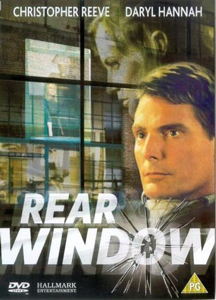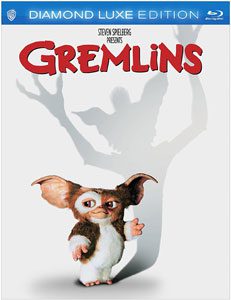One of the reasons accepted as valid for remaking a perfect classic is if you have something new to say via the same (or very similar) material. The 1998 version of “Rear Window,” notably classy for a TV movie of the era, fits that bill. It lacks the subtlety and suspense of Alfred Hitchcock’s 1954 original, the ultimate “citizens tackle a neighborhood crime” yarn.
But “Superman’s” Christopher Reeve and “Blade Runner’s” Daryl Hannah are nearly as compelling as James Stewart and Grace Kelly, and there are enough differences to sweep us up in a new story.
The original is a commentary on how neighbors have become more distant as the world got busier at midcentury, and “Rear Window” ’98 says technology has brought us together again at the end of the century – but in a new, impersonal way. The technology used by quadriplegic Jason (Reeve, himself a quadriplegic due to a 1995 horseback riding accident) is comparable to what’s used by everyone today, including voice-activated phone dialing and speech-based messaging.

“Rear Window” (1998)
Director: Jeff Bleckner
Writers: Eric Ellis Overmyer, Larry Gross (teleplay), Cornell Woolrich (story)
Stars: Christopher Reeve, Daryl Hannah, Robert Forster
The film’s biggest value is that it shows us the life of someone who can’t move his four limbs. It’s slightly sanitized, I’m sure, but writers Eric Overmyer and Larry Gross don’t shy away from making it clear that Jason can’t do what an able-bodied person can do.
Still a super actor
Reeve’s scratchy voice naturally shows that his vocal cords and throat are overworked compared to an average person, as he breathes partly with the help of a machine, moves his wheelchair by blowing into a straw, and uses voice commands for everything he needs – whether something automated or a call to an assistant.
The technology is amazing, but it’s also harrowing to know how easily a simple accident – such as a tube popping out of the machinery – could end his life. “Rear Window” ’98 naturally uses this for high melodrama, not a replacement for Hitchcock’s mastery, but respectable for a TV film.
Director Jeff Bleckner’s film is too similar to the original to not share the title, but a viewer rarely makes comparisons in their brain while watching it. While there are one-to-one equivalents among the characters, none are quite the same.
“Rear Window” ’98 actually has more vibrant interactions between apartment-dwellers in the building Jason is looking out on across the street. A suspect (Ritchie Coster’s Thorpe) who is more vicious than the silently threatening Thorwald (Raymond Burr) accosts his neighbors after the police come knocking after a domestic-violence complaint placed by Jason.
Jason can see every window simultaneously, allowing for a God’s-eye view of this little corner of the world. This fact is well utilized when Hannah’s Claudia – Jason’s colleague at an elite architecture firm — snoops in Thorpe’s art-studio/apartment, getting Jason’s instructions via earpiece.
Peeping Techno-Tom
The film could’ve done more with the technological possibilities. It’s awkwardly amusing that Jason has blatantly turned into a Peeping Tom, with his assistant Antonio (Ruben Santiago-Hudson) happily setting up cameras that allow for zooming. He does not shy away from watching strangers being intimate, and the film barely scolds him. Weirdly, the curtains and blinds have the sheerness of clear shower curtains, so I guess people on this block are exhibitionists.
“Rear Window” ’98 actually gets more into the Hitchcockian theme of doubling than the original – or at least, it gets there more blatantly – as Thorpe has seemingly traded out one girlfriend for another. They look similar, but Jason believes Thorpe has killed the first one.
The corpse’s location (if indeed there is a corpse) could’ve been played as more of a mystery. I never get a sense that Jason could be wrong about what he’s seeing. Then again, I feel that way about Stewart’s Jeff in the original film too.
“Rear Window” ’98 has one melancholy element that might’ve played as hopeful upon its airing: Jason genuinely believes a cure for spinal injuries is only a few years away. Watched today, we know such a cure hasn’t come in the quarter-century since. And it remains true that the U.S. is an expensive country to be disabled in. (It has become an expensive country to exist in, period.)
Still, “Rear Window” ’98 is a surprisingly fresh and engaging viewing experience if you understand it’s a curious companion piece to “Rear Window” ’54, not an attempt at improvement. There simply aren’t many movies about quadriplegics where the actor has that condition and is also an outstanding actor. There’s no better way to learn about the life of a quadriplegic within the bounds of mainstream entertainment than this.
RFMC’s Alfred Hitchcock series reviews works by the Master of Suspense, plus remakes and source material. Click here to visit our Hitchcock Zone.


